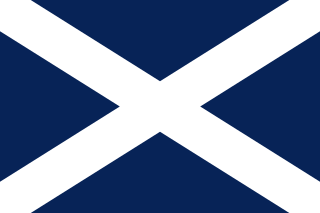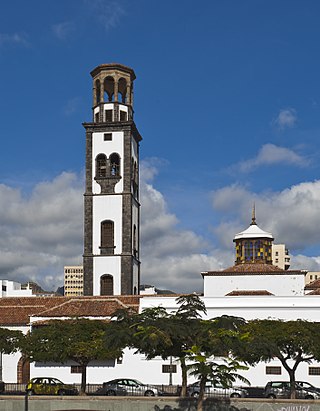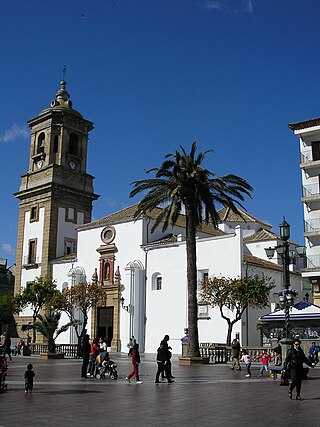
The Canary Islands, also known informally as the Canaries, are a Spanish region, autonomous community and archipelago in the Atlantic Ocean. At their closest point to the African mainland, they are 100 kilometres west of Morocco. They are the southernmost of the autonomous communities of Spain. The islands have a population of 2.2 million people and are the most populous special territory of the European Union.

Tenerife is the largest and most populous island of the Canary Islands. It is home to 42.9% of the total population of the archipelago. With a land area of 2,034.38 square kilometres (785.48 sq mi) and a population of 948,815 inhabitants as of January 2023, it is also the most populous island of Spain and of Macaronesia.

Santa Cruz de Tenerife, commonly abbreviated as Santa Cruz, is a city, the capital of the island of Tenerife, Province of Santa Cruz de Tenerife, and one of the capitals of the Canary Islands, along with Las Palmas. Santa Cruz has a population of 206,593 (2013) within its administrative limits. The urban zone of Santa Cruz extends beyond the city limits with a population of 507,306 and 538,000 within urban area. It is the second largest city in the Canary Islands and the main city on the island of Tenerife, with nearly half of the island's population living in or around it.

Garachico is a municipality and town on the northern coast of Tenerife, about 52 km West of the capital Santa Cruz de Tenerife, 50 km from Tenerife North Airport and 67 km from Tenerife South Airport. The town itself nestles below a 500m+ (1500 ft) cliff.

The Diocese of San Cristóbal de La Laguna, also called Diocese of Tenerife or Diocese Nivariense, is a diocese located in the city of San Cristóbal de La Laguna in the Canary Islands and a suffragan in the ecclesiastical province of the Archdiocese of Sevilla in Spain. The diocese includes the islands of Tenerife, La Palma, La Gomera and El Hierro, in the province of Santa Cruz de Tenerife. The seat has been vacant since 16 September, 2024.

The Virgin of Candelaria or Our Lady of Candle (Tagalog: Mahal na Birhen ng Candelaria, popularly called La Morenita, celebrates the Virgin Mary on the island of Tenerife, one of the Canary Islands. The center of worship is located in the city of Candelaria in Tenerife. She is depicted as a Black Madonna. The "Royal Basilica Marian Shrine of Our Lady of Candelaria" is considered the main church dedicated to the Virgin Mary in the Canary Islands and she is the patroness saint of the Canary Islands. Her feast is celebrated on February 2 and August 15, the patronal feast of the Canary Islands.

The Quito Metropolitan Cathedral, is a Catholic cathedral in Quito, Ecuador. Located on the southwestern side of the Plaza de la Independencia, it served as a seat of the Diocese of Quito from 1545 until 1848 when it was elevated to Archdiocese. In 1995, it was elevated to the Cathedral of Ecuador, making it the seniormost Catholic church in the country.

Pedro Roldán (1624–1699) was a Baroque sculptor from Seville, Andalusia, Spain. His daughter Luisa Roldán, known as La Roldana, was also a major figure of Spanish Baroque sculpture.

The Iglesia-Parroquia Matriz de Nuestra Señora de La Concepción is a Catholic church located in the city of Santa Cruz de Tenerife. It is the only church in the Canary Islands that has five naves.

The Iglesia-Parroquia Matriz de Nuestra Señora de La Concepción is a Roman Catholic church located in the city of San Cristóbal de La Laguna. This church is almost a twin of the Church of the Conception of Santa Cruz de Tenerife. It was the first parish was established in Tenerife.

The Iglesia de San Andrés Apóstol is a Catholic church and parish of the village of San Andrés.

The Priory Church is a minor basilica church in El Puerto de Santa María, province of Cádiz, Spain. It is documented from 1486 when the building was under construction. It was damaged by an earthquake in the 17th century and was partly rebuilt in the Baroque style. As a result of being constructed in two phases, the church contains both Gothic and Baroque architecture, exemplified in its portals.

Puerto de la Cruz is a city and municipality in the northern part of the island of Tenerife, Canary Islands, Spain. It was formerly known by its English translation, "Port of the Cross", although now it is known by its Spanish name in all languages. Puerto de la Cruz is located on the northern coast, 4 km (2 mi) northwest of La Orotava and 30 km (19 mi) west of Santa Cruz de Tenerife. The TF-5 motorway passes through the municipality. The population is 30,483 (2018). In Spanish, the local inhabitants are known as Portuenses. With an area of 8.73 km2 (3 sq mi), the municipality is the smallest in Tenerife. The elevation of the town's centre is 9 m (30 ft) above sea level and the highest point being Las Arenas, a volcanic cone with an elevation of 249 m (817 ft).

The Church of Our Lady of the Palm is a Roman Catholic church on the southwestern corner of the Plaza Alta in Algeciras, Spain. Listed as Bien de Interes Cultural by the Spanish Ministry of Culture in 1992, like the Spanish: Plaza Alta itself, it is an important city landmark.

Old Town of Cáceres is a historic walled city in Cáceres, Spain.

The eruption of the Trevejo volcano also called the eruption of the Arenas Negras volcano was a volcanic eruption that took place from 5 to 14 May 1706, about 8 kilometers south of the Garachico in the north of the island of Tenerife (Spain). The eruption destroyed the old port of Garachico and ended the golden period of the town.

The Port of Garachico is a marina port located in the municipality of Garachico in the north of Tenerife, administered by the Port Authority of Santa Cruz de Tenerife.
Ana Acosta is an Argentine actress and comedian.

The Church of St James is a Roman Catholic parish church located in the town of Los Realejos, Tenerife, Spain. Founded in 1496, it was declared a national monument of Spain by Royal decree of Spain 598. It is dedicated to Saint James the Great, the patron saint of Spain.




















